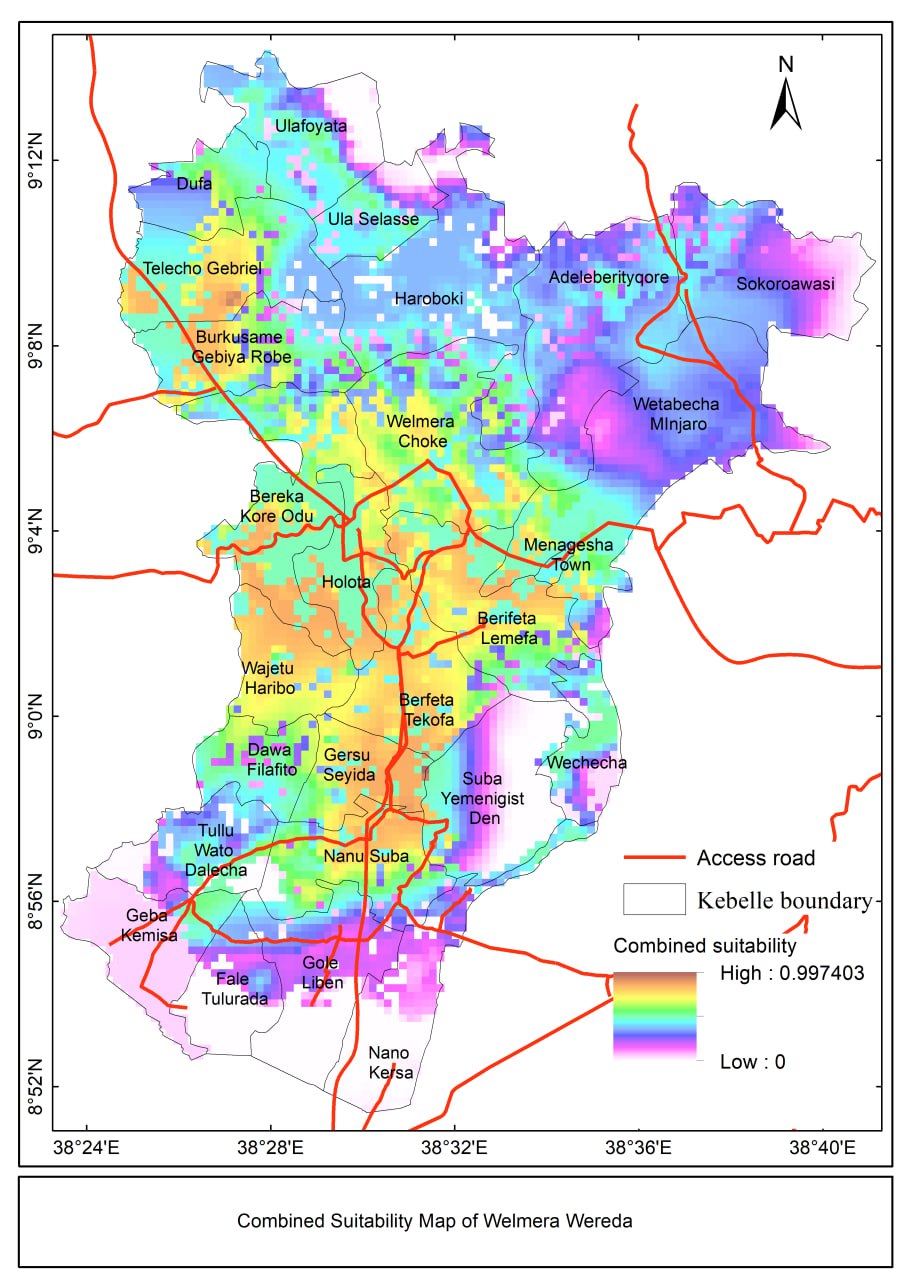The RAISE-FS project remains steadfast in its commitment to transforming the Ethiopian food system. Through a dedicated focus on employing a demand-driven and interdisciplinary approach, the project aims to catalyse transformation within the food system. This approach is underpinned by the integration of grassroots planning tools, such as the Rapid Food System Appraisal (RFSA) and Innovation Recommendation Mapping (IRM). These tools have been designed to facilitate comprehensive evidence generation and promote sustainable changes in the food systems.
The development of the IRM modelling tool and approach has been a collaborative effort, initiated within SWR Ethiopia as part of the RAISE-FS project, building on previous work from the BENFIT (CASCAPE and REALISE projects) by Wageningen University Research. This ongoing initiative involves experts from Mekelle University, the Ministry of Agriculture (MoA), and the Ethiopian Institute of Agricultural Research (EIAR). The inclusive approach aims to institutionalize the uptake of IRM by local stakeholders, ensuring its relevance and effectiveness in the Ethiopian context.
The IRM is a comprehensive, evidence-based approach that harnesses the power of data, models, tools, expert knowledge, and stakeholder engagement to support agricultural planning at different scales. It assists users and decision-makers in assessing the suitability of a particular location for specific agricultural innovations and determining the enabling and limiting factors for agricultural innovations.
As part of the IRM development within the RAISE-FS project, a series of working sessions and field-level data collection has been conducted to develop IRM utilization for crop-specific planning and scaling support. Teams of experts have developed Innovation Recommendation Maps for various regions based on biophysical and socio-economic parameters, demonstrating the practical application of this approach. Consequently, IRM was developed for Wolmera, Silti, Kersa, Hawassa Zuria and Yilmana Densa Woredas with the main focus on faba bean, maize-haricot bean intercropping, sweet potato, soybean and potato innovations, respectively.

In line with these efforts, on April 11th, 2024, the RAISE-FS project organized a one-day workshop in Addis Ababa, focusing on the practical application of RFSA and IRM in woreda planning using the Welmera use case. The workshop brought together participants from the Ministry of Agriculture, Ethiopian Institute of Agricultural Research, Wolmera Woreda Bureau of Agriculture, Woreda Planning Office, and Holeta Agricultural Research Centre, as well as development agents and farmers from selected woreda and kebeles. The event aimed to enhance understanding and practical implementation of RFSA and IRM in the context of agricultural planning, with a specific focus on the Welmera area.

During the workshop, round table group discussions and reflection sessions were conducted to facilitate benchmarking and enhance understanding of the current woreda planning process. These sessions familiarized stakeholders with the use of RFSA for evidence-based, bottom-up planning, and also helped in identifying challenges and leverage points for scaling agricultural innovations. Additionally, the workshop focused on the scaling of agricultural innovations through IRM-supported identification of suitable areas, with the ultimate goal of transforming the food system.
The stakeholders’ feedback on the suitability maps for IRM was very positive, reflecting the representation of both biophysical and socio-economic realities as well as site-specific limiting factors. The capability of forecasting seed, inoculant, and fertilizer demand estimation was also acknowledged as promising in terms of potential adoption. During group discussions utilizing the IRM-generated suitability maps in different scenarios, stakeholders were able to identify suitable areas for scaling of faba bean while gaining insight into site-specific limitations related to biophysical and socio-economic factors. This understanding provides a foundation for targeted improvements in the identified areas.
Stakeholders also identified challenges and opportunities for implementing IRM for woreda-level planning; shared their insights for possible support strategies required. The workshop raised increased interest in implementing IRM for more crops supported by capacity building and collated constructive insights that can be used to achieve RAISE-FS effort to implement IRM-supported woreda planning for 40 woredas.
Overall, the commitment to transforming the Ethiopian food system through evidence-based planning and scaling is at the core of the RAISE-FS project. By harnessing the power of collaborative efforts, grassroots integrated planning tools, and stakeholder engagement, the project drives sustainable changes that have a lasting impact on food security and agricultural development in Ethiopia. The journey towards a transformed food system is ongoing, and through continued dedication and collaboration, we can achieve meaningful progress for the benefit of all stakeholders involved.

